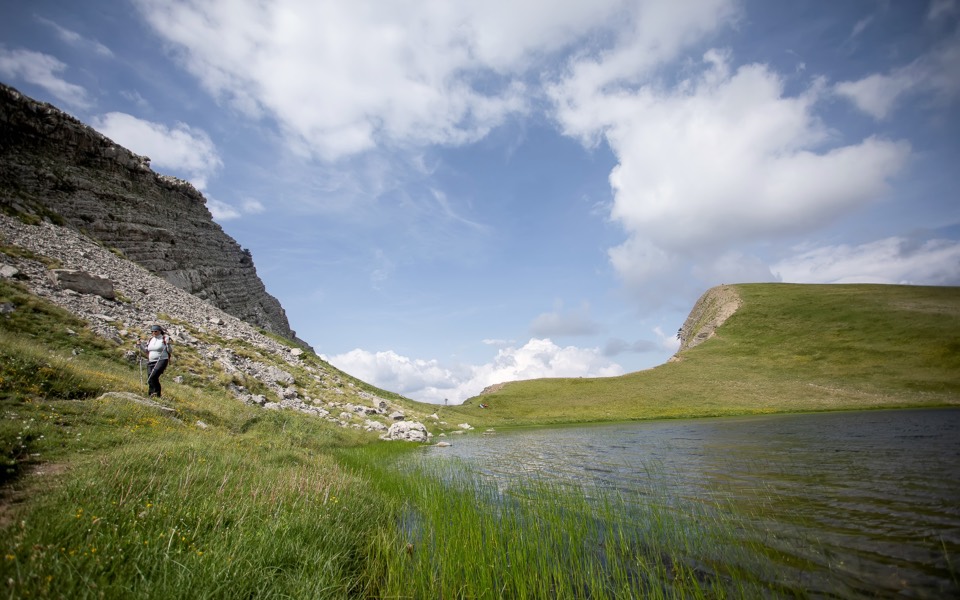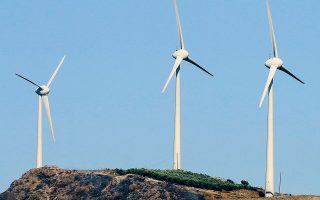Wind farm has no place on Pindos

I was very disappointed when the first bulldozers arrived at Agrafa, the historic mountain area of central Greece, to start the work on a new wind farm. I was hoping that after all the pressure and complaints, the government would show some flexibility in its placement. We all understand that we must find alternative energy sources that are green and sustainable, but this cannot be at the expense of the environment and the economy.
First we must recognize that some places have something untouchable. Who would agree to wind turbines on the Holy Mount Athos? It is an ideal location – a high, elongated cape, windswept from all directions – but it would be sacrilege. The same goes for Mount Ida in Crete, the island of Delos, Delphi and all of nature’s most beautiful creations, like the Pindos mountain range, of which Agrafa is part.
Pindos is unique not only by virtue of its landscapes, forests and rivers, but also of its history and role as a fortress and cultural hub in the years of the Greek Revolution. The different toponyms signify battles of the Revolution and, of course, the pastures that have been looked after for centuries by the same families. As the name of the area itself suggests, these lands safeguard unwritten memories and events of our nation’s history.
Pindos is a perfect environment to promote sustainable tourism, similar to other mountain areas in Europe facing desertion, unemployment and poverty. It also be very profitable. In Germany, hiking adds 3.7 billion euros to the national economy each year and cycling adds another 4 billion. Long hikes play an even more important role. The French part of the Chemin de St Jacques, a medieval pilgrim road of 1,530 kilometers, is crossed by more than 20,000 hikers every year, each with a daily budget of around 50 euros. In 2010, 6,140 hikers walking the Chemin de Robert Louis Stevenson (120 km) spent a combined 2.9 billion euros in the local community. This is money that stays there; it doesn’t go to foreign hotel groups or multinationals. Lucian Way, a similar path created in southwest Turkey in 2000, attracts around 30,000 hikers today.
These amounts signify a very large contribution to the local economies of remote areas with no other resources. They require some investment at first, in accommodation and food services, but no large infrastructure is needed. On the contrary. These activities do not pollute or harm nature and are highly sought by an increasing number of people looking to get out of the city and enjoy some moments of healthy and peaceful living.
The construction of wind farms will do irreparable damage to the mountain slopes, disturbing both fauna and flora. Has anyone actually calculated the damage of the road construction needed for the wind farm? The existing roads are only accessible by 4×4 vehicle. Who will supervise the bulldozers? The slightest intervention can cause wounds that are difficult to heal. The ugly consequences of such interventions are still visible, 40 years on, in the nearby valley of Agrafiotis, where the hills slide onto the road every winter.
We have already set the groundwork for hiking tourism in Pindos. For the last 50 years I have been involved in the creation of a path that crosses Greece from Mani, in the southwestern Peloponnese, to Gramos, in the western part of Macedonia, called the Peloponnese and Pindos Way. No one paid attention to it at first. Today many are excited at the prospect of walking or running in these mountains. This work, undertaken by Apostolis Tsimpanakos, is moving slowly. Only in Roumeli, in central Greece, is it moving faster, as the local authorities appreciate the long-term benefits of sustainable growth.
How many areas do we still have that are as pure and open as Pindos? Wind turbine only belong in second-rate areas, not on the highest peaks of the most beautiful mountain range in the country, scaring off the tourists we so need in order to truly save and secure a long-term sustainable growth trajectory for Pindos.
Tim Salmon is the author of two books about the mountains of Greece: “Trekking in Greece: The Peloponnese and Pindos Way” and “The Unwritten Places.”





